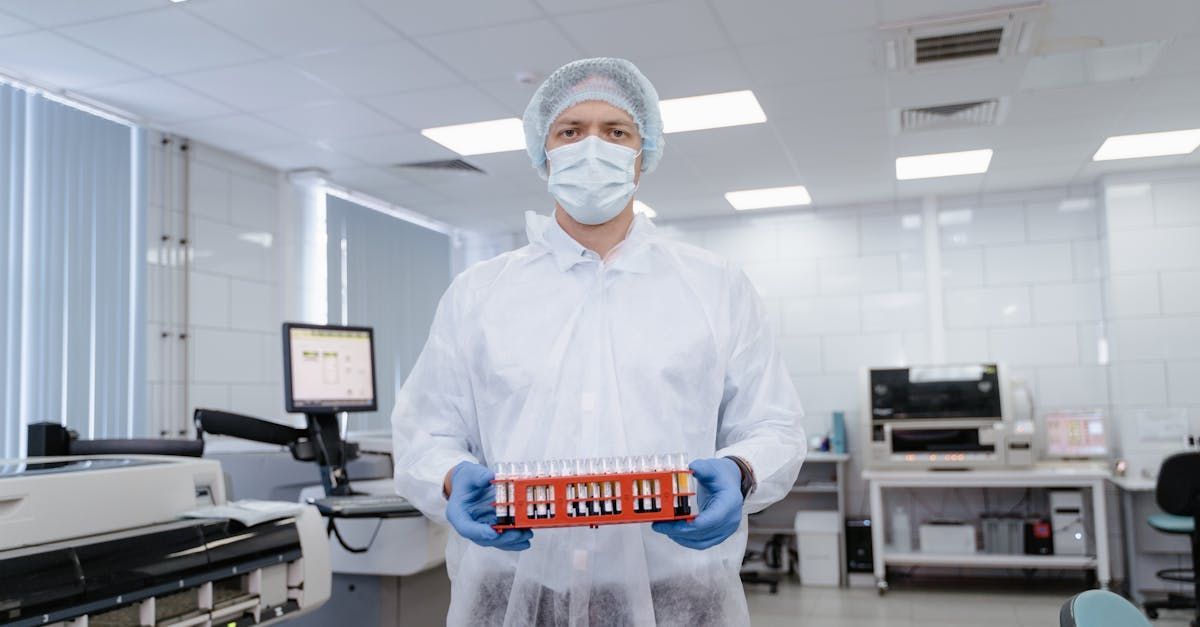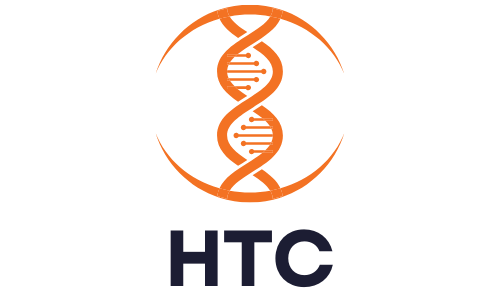Investment Implications with The Rise of AI in Healthcare
Artificial intelligence (AI) is transforming the healthcare industry in unprecedented ways. From enhancing patient care and accelerating drug discovery to improving clinical decision-making, AI's integration is revolutionizing various aspects of healthcare. The significance of AI lies in its ability to process vast amounts of data quickly and accurately, providing insights that were previously unattainable. This capability is not only advancing medical research and treatment but also creating new avenues for efficiency and precision in healthcare delivery.
The rise of AI in healthcare has captured the attention of investors, entrepreneurs, and industry experts alike. As AI technologies continue to evolve and demonstrate their potential, investment in AI-driven healthcare solutions has surged. These investments are driving innovation and offering significant returns, making AI one of the most promising areas for growth in the healthcare sector.
In this article, we explore the investment implications of AI in healthcare. We will highlight promising applications, uncover opportunities, and address the challenges that come with investing in this rapidly evolving field. By understanding the landscape of AI in healthcare, investors can make informed decisions and capitalize on the transformative potential of these technologies.
AI-Driven Precision Medicine: A Game-Changer
Precision medicine represents a groundbreaking shift in the healthcare paradigm by tailoring treatments to individual patients based on their unique genetic, molecular, and clinical profiles. Unlike traditional approaches that apply a one-size-fits-all method, precision medicine aims to deliver personalized healthcare solutions that enhance the efficacy and safety of treatments. This personalized approach is particularly crucial in fields such as oncology, where genetic differences among patients can significantly impact how they respond to therapies.
AI plays a pivotal role in advancing precision medicine. By leveraging sophisticated algorithms and machine learning techniques, AI can analyze vast amounts of patient data, including genomic information, clinical records, and real-world evidence. This analysis enables AI to identify patterns and make predictions about disease progression, treatment responses, and potential adverse events. As a result, healthcare providers can develop more effective, individualized treatment plans that improve patient outcomes and reduce the trial-and-error approach often associated with conventional treatments.
A prime example of AI-driven precision medicine is the work being done by Notable Labs. This clinical-stage platform therapeutics company is at the forefront of developing predictive precision medicines using advanced AI and machine learning. Notable Labs' approach involves analyzing patient-derived cancer cells' functional responses to various drugs. By applying AI to these data, they can identify the most effective therapeutic regimens tailored to each patient's unique molecular profile. This innovative approach not only enhances the precision of cancer treatments but also accelerates the development of targeted therapies, offering new hope to patients with difficult-to-treat cancers.
The benefits of AI-driven precision medicine are substantial. Improved patient outcomes are perhaps the most significant advantage, as personalized treatments are more likely to be effective and less likely to cause adverse effects. Additionally, by targeting therapies more precisely, healthcare providers can reduce unnecessary treatments and associated costs, making healthcare more efficient and cost-effective. Furthermore, the accelerated development of targeted therapies means that new, life-saving treatments can reach patients faster, potentially transforming the landscape of disease management and patient care.
Investment Opportunities in AI Healthcare Startups
The integration of AI in healthcare has generated a wealth of investment opportunities, particularly within startups driving innovation across various sectors of the industry. Venture capitalists, strategic investors, and angel investors are increasingly focusing on AI-driven healthcare startups that are revolutionizing drug discovery, diagnostics, clinical decision support, and patient monitoring.
Drug Discovery
AI is playing a transformative role in accelerating the drug discovery process. Traditional drug development is notoriously lengthy and costly, often taking over a decade and billions of dollars to bring a new drug to market. AI can streamline this process by analyzing vast datasets to identify potential drug targets, predict the efficacy and safety of candidate molecules, and optimize clinical trial designs.
- Atomwise: This company uses AI to discover new drugs, employing deep learning algorithms to predict bioactivity and toxicity. Atomwise's technology has already been utilized to identify promising drug candidates for diseases like Ebola and multiple sclerosis.
- Insilico Medicine: Known for its AI-driven drug discovery platform, Insilico Medicine integrates genomics, proteomics, and pharmacogenomics data to uncover novel therapeutic targets and develop personalized medicine approaches.
- Recursion Pharmaceuticals: This company combines AI with experimental biology to identify new treatments for various diseases. Recursion's platform automates high-content screening of millions of cellular images to find potential drug candidates rapidly.
Diagnostics
AI-powered diagnostic tools are revolutionizing the way medical conditions are detected and diagnosed. These tools can analyze medical images and other diagnostic data with greater accuracy and speed than human radiologists, leading to earlier and more precise diagnoses.
- Viz.ai: Specializing in stroke detection, Viz.ai uses deep learning to analyze CT scans and identify signs of a stroke in real time. This rapid diagnosis can significantly improve patient outcomes by facilitating timely treatment.
- Zebra Medical Vision: Zebra Medical Vision employs AI algorithms to read medical imaging scans and detect various diseases, including liver disease, osteoporosis, and cardiovascular conditions. Their AI platform can analyze these images faster and often more accurately than traditional methods.
- Aidoc: This company provides AI solutions for radiology, analyzing medical images to detect critical conditions like intracranial hemorrhages and pulmonary embolisms. Aidoc's tools assist radiologists in prioritizing urgent cases and improving diagnostic accuracy.
Clinical Decision Support
AI-driven clinical decision support systems are enhancing the capabilities of healthcare professionals by providing more informed and accurate diagnoses, treatment recommendations, and risk assessments. These systems use data from electronic health records, medical literature, and patient data to assist clinicians in making better-informed decisions.
- Babylon Health: Babylon Health uses AI to provide virtual healthcare services, including symptom checking and telemedicine consultations. Their AI-powered platform helps patients understand their symptoms and connects them with appropriate healthcare providers.
- Buoy Health: This company offers an AI-driven platform that guides patients through a series of questions about their symptoms to provide personalized health information and next steps. Buoy's tool aims to improve patient engagement and decision-making.
- Infermedica: Infermedica's AI-based platform supports clinical decision-making by providing symptom analysis, preliminary diagnosis, and triage recommendations. It helps healthcare providers manage patient intake and prioritize care.
Patient Monitoring
AI algorithms are enhancing patient monitoring by analyzing real-time data from wearable devices, remote monitoring systems, and electronic health records. This capability is particularly beneficial for managing chronic conditions and providing preventive care.
- Wearable Devices: AI-powered wearables like smartwatches and fitness trackers continuously monitor vital signs and health metrics, alerting users and healthcare providers to any concerning changes. Examples include devices from companies like Fitbit and Apple.
- Remote Monitoring Systems: AI-driven remote monitoring systems collect data from patients with chronic conditions, such as diabetes or heart disease, and analyze it to detect early signs of deterioration. These systems provide personalized recommendations for lifestyle modifications and preventive care, reducing hospital readmissions and improving patient outcomes.
The rise of AI in healthcare presents lucrative opportunities for investors. By focusing on startups that leverage AI to innovate in drug discovery, diagnostics, clinical decision support, and patient monitoring, investors can capitalize on the transformative potential of these technologies. As AI continues to reshape the healthcare landscape, the value and impact of these investments are likely to grow significantly.
Challenges and Considerations
While the investment opportunities in AI healthcare startups are promising, several challenges and considerations must be addressed to ensure successful and sustainable growth in this sector.
Regulatory Landscape
The regulatory environment for AI-based healthcare products is complex and continuously evolving. Regulatory bodies such as the FDA in the United States and the EMA in Europe are still developing comprehensive frameworks for approving AI-driven medical technologies. Navigating these approval processes can be intricate and time-consuming, posing a significant challenge for startups.
- Complexity and Evolving Nature: The regulatory landscape is characterized by its complexity and ongoing changes. New guidelines and standards are regularly introduced to address the unique aspects of AI technologies in healthcare.
- Importance of a Solid Regulatory Strategy: Startups must develop a robust regulatory strategy that aligns with current regulations and anticipates future changes. This involves engaging with regulatory bodies early in the development process and ensuring compliance with all necessary guidelines to facilitate smoother approval pathways.
Data Quality and Privacy
AI algorithms rely heavily on high-quality data for training and accurate predictions. The quality and quantity of data directly impact the performance and reliability of AI healthcare solutions.
- Dependence on High-Quality Data: Ensuring that the data used to train AI models is comprehensive, accurate, and representative is crucial. Poor data quality can lead to biased or incorrect predictions, undermining the effectiveness of AI applications in healthcare.
- Ensuring Data Privacy, Security, and Compliance: Healthcare data is highly sensitive, and maintaining its privacy and security is paramount. Compliance with regulations like the Health Insurance Portability and Accountability Act (HIPAA) in the United States and the General Data Protection Regulation (GDPR) in Europe is essential. Startups must implement robust data protection measures and ensure transparency in data usage to build trust with patients and healthcare providers.
Ethical Considerations
The use of AI in healthcare raises important ethical concerns that must be addressed to promote responsible AI development and deployment
.
- Addressing Bias, Transparency, and Accountability: AI systems can inadvertently perpetuate biases present in the training data, leading to unfair or discriminatory outcomes. Ensuring transparency in AI decision-making processes and establishing accountability mechanisms is crucial to address these issues.
- Importance of Responsible AI Development: Startups must prioritize ethical considerations in their development processes. This includes implementing fairness checks, conducting bias audits, and promoting diversity in AI research and development teams to ensure that AI solutions are equitable and trustworthy.
Adoption and Integration
Integrating AI solutions into existing healthcare systems can be challenging due to various factors, including resistance to change and the need for healthcare professionals to develop new skills and workflows.
- Challenges in Integration: Healthcare systems are often complex and fragmented, making the integration of new AI technologies a significant challenge. Compatibility with existing electronic health records (EHRs) and interoperability with other systems are critical factors for successful integration.
- Factors Like Resistance to Change and Need for New Skills: Healthcare professionals may resist adopting AI solutions due to concerns about job displacement, reliability, and the need for new skills. Comprehensive training programs and clear communication about the benefits of AI can help mitigate resistance and facilitate smoother adoption.
Scalability and Commercialization
Scaling AI healthcare solutions from pilot projects to widespread commercialization requires substantial resources, strategic planning, and partnerships.
- Scaling AI Healthcare Solutions: Moving from successful pilot projects to full-scale implementation involves overcoming various technical, logistical, and financial challenges. Ensuring that AI solutions can handle increased workloads and maintaining their performance at scale is essential.
- Resources, Partnerships, and Strategic Planning Required: Achieving scalability and commercialization often requires significant investment, strategic partnerships, and meticulous planning. Collaborating with established healthcare providers, payers, and technology companies can provide the necessary infrastructure and market access to scale AI solutions effectively.
Navigating these challenges and considerations is crucial for investors and startups alike. By addressing regulatory, data privacy, ethical, adoption, and scalability issues proactively, stakeholders can maximize the potential of AI in healthcare and drive meaningful advancements in patient care and clinical outcomes.
Notable Labs: A Pioneer in AI-Driven Precision Medicine
Notable Labs stands at the forefront of the AI-driven precision medicine revolution, exemplifying the transformative potential of artificial intelligence in healthcare. As a clinical-stage platform therapeutics company, Notable Labs leverages advanced AI and machine learning techniques to develop predictive precision medicines tailored to individual patients' unique genetic, molecular, and clinical profiles.
Precision Medicine in Action
At the heart of Notable Labs' innovation is their Predictive Medicine Platform (PMP), which utilizes sophisticated AI algorithms to analyze vast amounts of patient data. This includes genomic information, clinical records, and real-world evidence. By identifying patterns and making precise predictions about disease progression, treatment responses, and potential adverse events, Notable Labs can tailor treatments to optimize patient outcomes. This personalized approach not only enhances the efficacy of therapies but also minimizes side effects and reduces overall healthcare costs.
Transformative Impact and Investment Appeal
The success of Notable Labs highlights the immense investment potential within the AI healthcare sector. By focusing on precision medicine, Notable Labs addresses significant unmet medical needs, particularly in oncology. Their ability to harness AI for developing targeted therapies has attracted substantial interest from investors, further underscoring the value and promise of AI-driven healthcare solutions.
Investors looking to capitalize on the rise of AI in healthcare can draw valuable insights from Notable Labs' approach. Their focus on integrating AI with precision medicine serves as a model for other startups and emphasizes the importance of data-driven, patient-centric innovation in the healthcare industry.
Future Outlook
As AI continues to reshape the landscape of healthcare, Notable Labs remains a key player to watch. Their pioneering efforts in predictive precision medicine exemplify how AI can revolutionize patient care, offering new hope for effective treatments and better health outcomes. For investors, the ongoing advancements by companies like Notable Labs present exciting opportunities to support groundbreaking innovations that are poised to transform healthcare as we know it.
Conclusion
The transformative potential of AI in healthcare cannot be overstated. From precision medicine and drug discovery to diagnostics, clinical decision support, and patient monitoring, AI is revolutionizing the way healthcare is delivered and experienced. The integration of AI into healthcare systems promises to improve patient outcomes, streamline processes, reduce costs, and accelerate the development of new treatments.
Investing in AI healthcare startups presents significant opportunities, but it also requires informed decision-making. Understanding the regulatory landscape, ensuring data quality and privacy, addressing ethical considerations, and navigating the challenges of adoption, integration, scalability, and commercialization are crucial for success.
Staying updated on the latest developments and trends in AI healthcare is essential for making informed investment decisions. By doing so, investors can capitalize on the immense potential of AI to drive innovation and improvement in healthcare while effectively managing the associated risks and challenges.
As AI continues to advance and reshape the healthcare landscape, the time is ripe for investors
to engage with this dynamic and promising sector. With a strategic approach and a commitment to responsible investment, the rewards can be substantial, both in terms of financial returns and in contributing to the advancement of healthcare for the benefit of patients worldwide.










